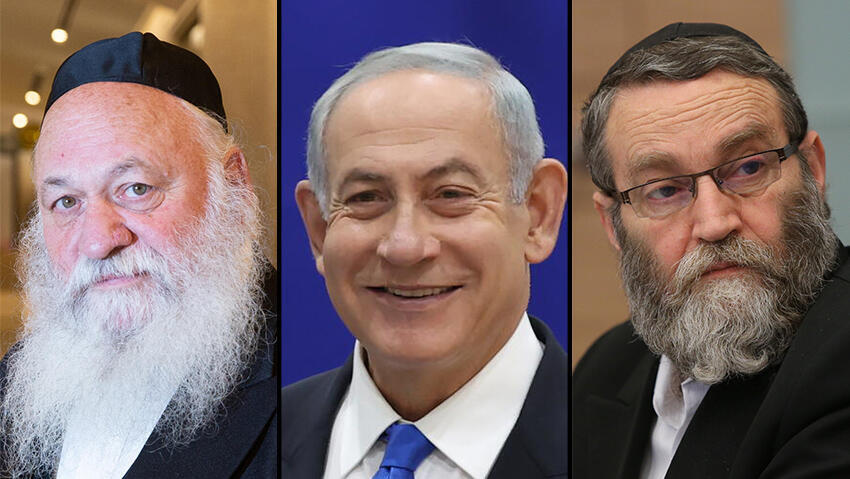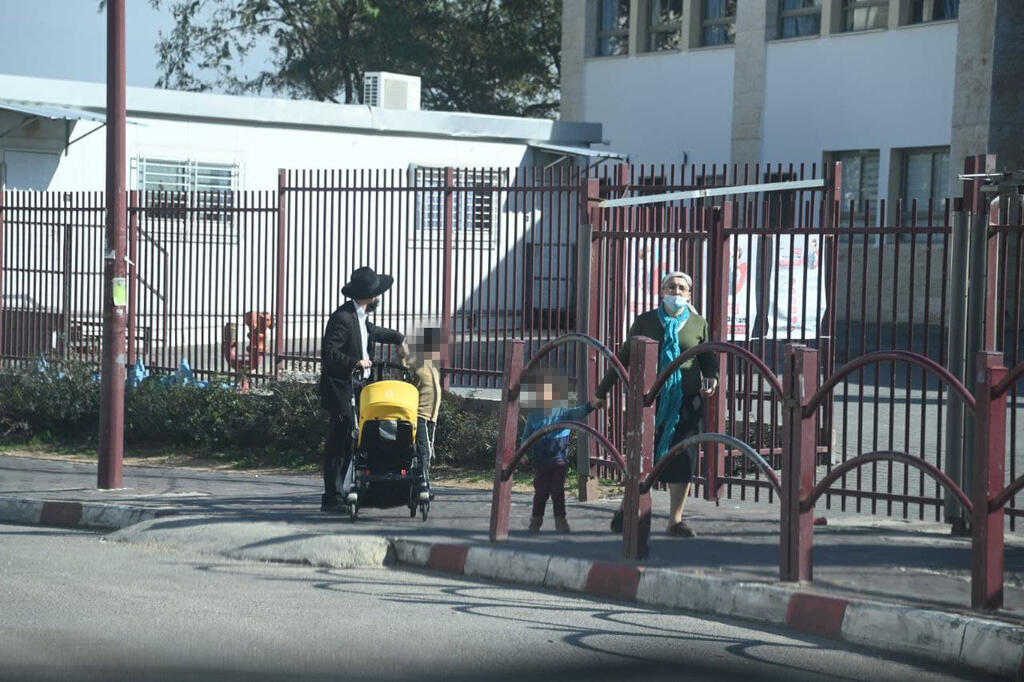The two factions making up the United Torah Judaism alliance have agreed on Monday to run a joint slate ahead of the upcoming general election after opposition leader Benjamin Netanyahu managed to successfully bridge their longstanding differences over secular education in ultra-Orthodox schools.
The two constituent factions of the Ashkenazi Haredi alliance — the Hasidic-dominated Agudat Israel and the more conservative, non-Hasidic Degel HaTorah — have long been a fixed feature in Netanyahu's right-wing and religious bloc, and the rift between the two threatened to dash Netanyahu's hopes of retaking the levers of power.
2 View gallery


Agudat Israel head Yitzchak Goldknopf, opposition leader Benjamin Netanyahu and Degel HaTorah chief Moshe Gafni
(Photo: Alex Kolomoisky, Amit Shabi)
With just three days left until the final deadline to submit lists of candidates for the November 1 vote expires, Netanyahu applied a heavy pressure campaign on both sides in which he pledged that if he is reelected prime minister, he will match funding for ultra-Orthodox institutions that do not teach core subjects to that of secular public schools.
The issue at the crux of the dispute is talks between the Hasidic Belz dynasty — the second largest in Israel — and the Education Ministry over the establishment of a new and separate school system for their flock that would include core subjects in its curriculum, such as math, English and science, in return for increased state funds.
Their non-Hasidic peers took issue with the move, which they deemed discriminatory, and demanded budgets for their educational institutions be raised as well but without any changes to the curriculum as a prerequisite to joining a potential Netanyahu-led government.
However, such a move is expected to run into legal hurdles due to the disconnect between the scope of the core curriculum being taught and the amount of funding institutions receive, and therefore will have to be enshrined in legislation, including the passage of an "override clause" that would prevent the Supreme Court from striking it down.
This is another achievement for Netanyahu after he also managed to broker a reunion on the far-right which will see Bezalel Smotrich's Religious Zionism and Itamar Ben-Gvir's Otzma Yehudit run together on a joint ticket in the upcoming polls.
Thus, Netanyahu ensures that none of the factions that make up his religious-conservative bloc falls under the electoral threshold which requires candidates to muster votes equivalent to four seats in the 120-strong Knesset.
However, similar efforts on the governing coalition's part have been less fruitful as Labor leader Merav Michaeli rejected Prime Minister Yair Lapid's offer to unite with the Meretz Party in return for generous gestures and senior portfolios despite both parties teetering over the electoral threshold in recent opinion polls.


